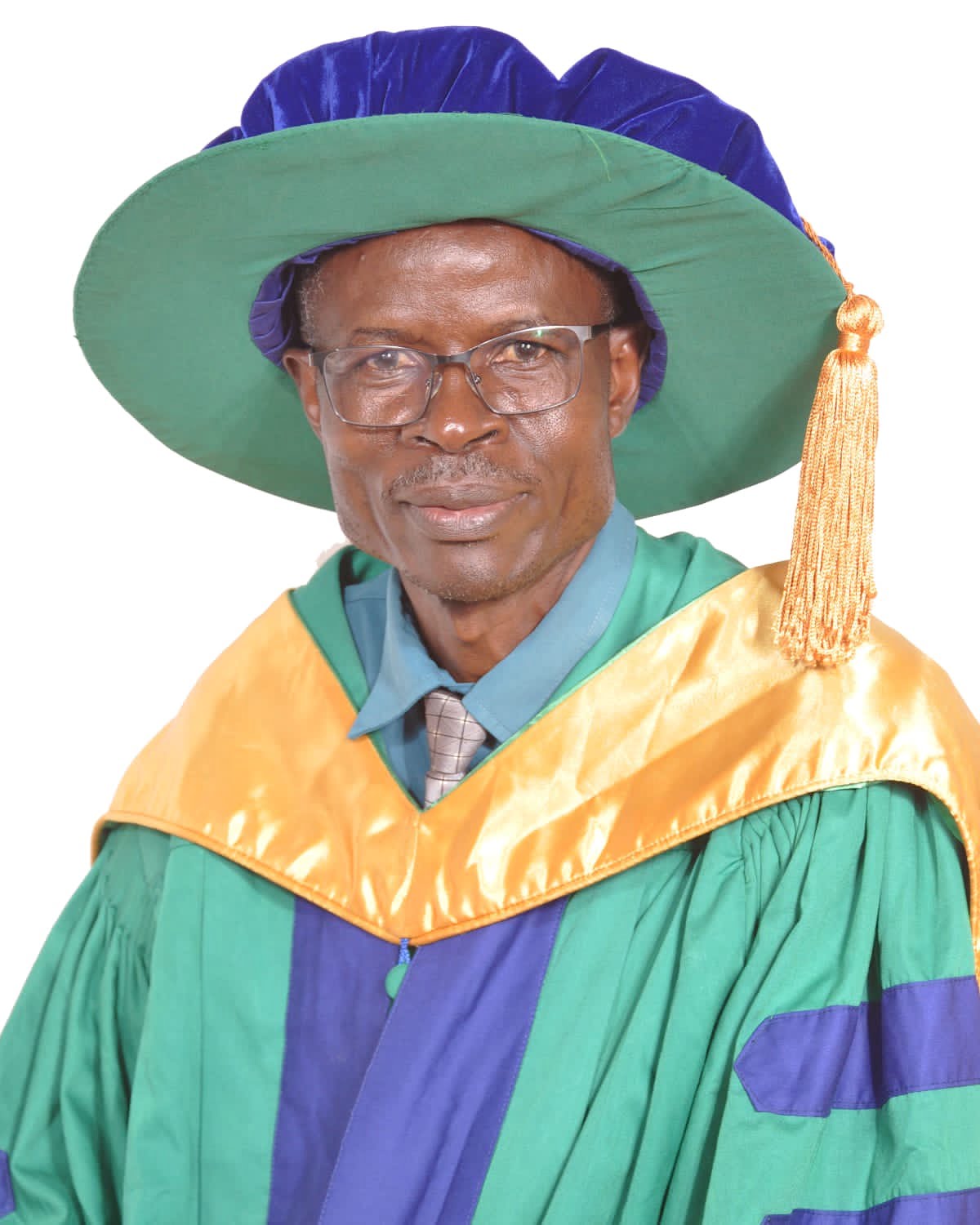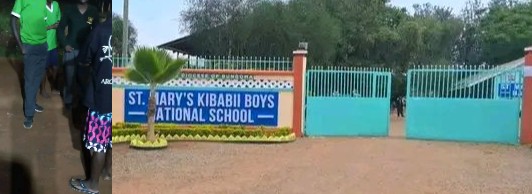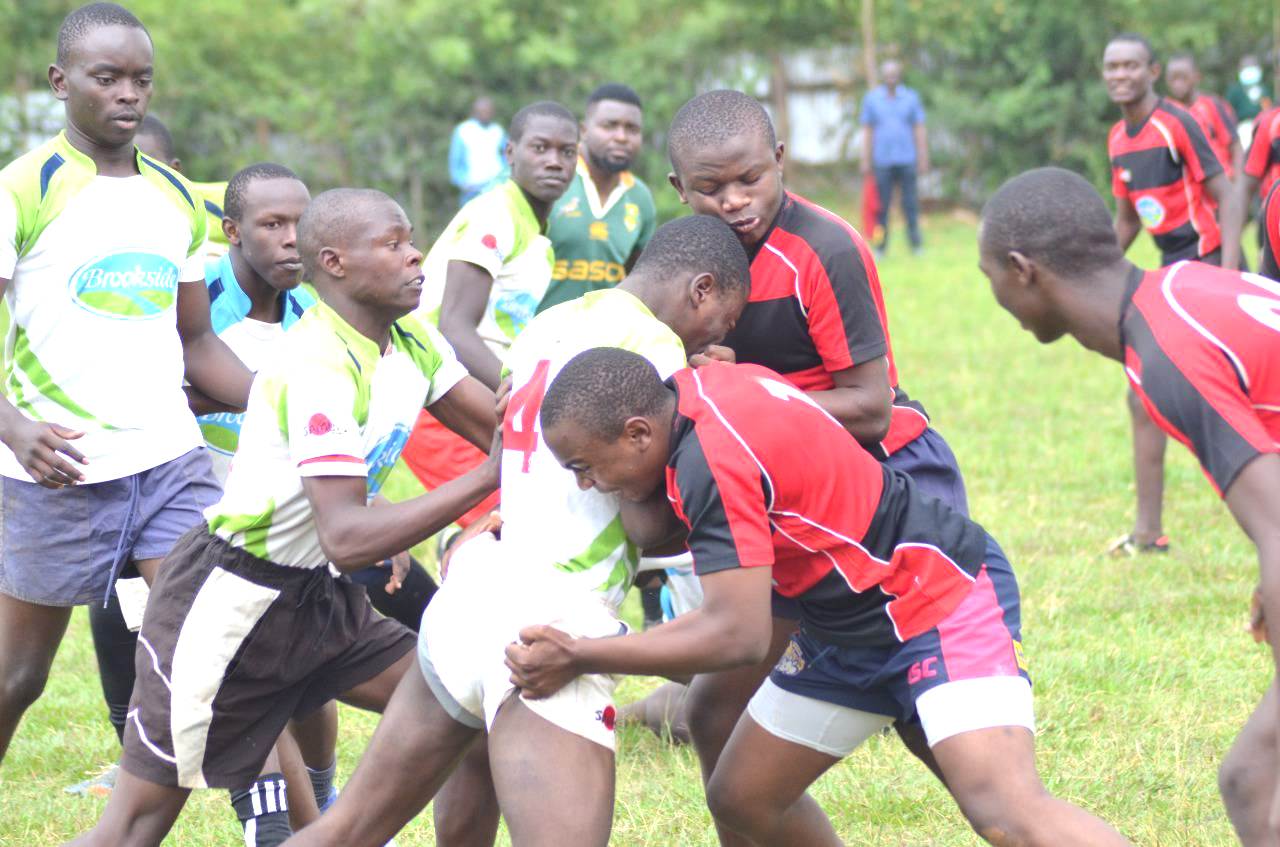By Charles Okoth
The setting is a small village in the interior of Butula Sub-County, in a small primary school called Lukhari. The road leading to this place is, to put it gently, bad. Luckily for us, it has not rained for some time, so the ditches are not filled with dirty water and sticky, slimy mud. Welcome to the present workplace of Dr Eugine Pancras Wesonga Otele, PhD; the head teacher, Lukhari Primary School, Tingolo Zone, Butula Sub-county, Busia County.
Modestly dressed, Dr Otele cuts the image of a bespectacled scholar ready for a lecture. But the setting is somewhat wrong: a hard-backed wooden chair, a 3×2 feet bare table, a bench for visitors, and a grey wall with a few manilla broadsheets make up the full inventory of the office gear.
But nothing will dull the determination of this primary school head teacher, who has, through native wit and raw determination, risen through the ranks to attain that which most of his colleagues can only dream of.
“I am very happy to be here,” he points out hurriedly, as he notices our searching stares. “I am new here; not yet a year. But I find this a very peaceful setting.”
And probably, peace is what it is all about. A spirit such as his can only aspire for that. It could be what has propelled him to go for more academic principalities to conquer – for to him, a man must aspire to satisfy his quest for self-actualization.
Born 58 years ago, Dr Otele attended Bumala ‘B’, his local primary school, from 1971 to 1978. He sat his CPE, passed highly, and proceeded to the local giant, Butula High School. Due to assorted problems, he did not opt for A-Level, but taught for some time as an untrained teacher.
In 1989, he joined Kericho TTC, graduating in 1991. He then taught in various schools, before being promoted to a deputy head teacher at Butunyi Primary School in Butula Sub-county.
“That was when I started reckoning with the challenges of school administration,” Dr Otele reminisces. “It paved the way for my later opting to study that area at advanced levels,” he adds.
In 2001, he was promoted to the position of head teacher, and posted to Bumutiru ACK Primary School. Later on, in 2004, he was transferred to Magombe Primary School.
It was while at Magombe that he decided to enrol for a Bachelor’s degree in education.
“I felt what I can term intellectual restlessness,” he says. “I felt a degree of dissatisfaction. I loved reading; I read everything, from newspapers to magazines to story books. I also loved reading scholarly essays and books. I felt like a motorcar engine on a bicycle. I had to find an outlet.”
He ended up at the University of Nairobi’s School of Education, in 2004. He opted to study Literature and Kiswahili. As a ‘Sandwich student’, it was remarkable doing the course for almost the same time it took a regular student: he graduated in 2009, while the regulars graduated in 2008.
After a brief rest he enrolled for a Masters’ Degree in 2012. This time, he opted for Jaramogi Oginga Odinga University of Science and Technology (JOOUST). To further his fascination with administration, he joined the department of Educational Administration and Management, from where he graduated in 2016.
“The bug had bitten. This time, I did not wait: I had to get to the next level: PhD. Encouraged by my supervisor Prof Michael Okwara, I handed in my proposal on a subject that I felt was a source of concern: Influence of induction courses on service delivery by newly employed teachers in primary schools. It made the cut, and I was good to go. Prof Okwara and Dr Jack Ajowi took up the supervisory duties.”
In this era of doubts on authenticity of degrees, Dr Otele has taken caution to have his certification repertoire in place. In preparation for our chat, he has brought along everything we would need to view, just in case we needed such edification.
Later, talking to Prof Michael Okwara, I am assured about his erstwhile student.
“Dr Eugine Otele was my student, both at Masters and Doctorate levels. May I confirm that he was a diligent student, who managed both courses in record time. He has published scholarly papers in two referred journals; essentially making him an authority in his area,” he recounted.
On how he views his former student’s situation as a primary school teacher, Prof Okwara sees it as misplacement. He advises the Teachers’ Service Commission to place such teachers in tertiary institutions, or Diploma teachers’ colleges.
“Such personnel are a rarity. Apart from being a diligent scholar, Dr Otele is an amiable and reliable character. Such personnel should be appreciated and encouraged. That’s also the proof of the pudding as far as employers are concerned. We must learn to appreciate our scholars,” hereasons.
And talking about TSC, one hopes that achievers like Dr Otele have at least been motivated in one way or the other?
“Well, I have been promoted to the highest level I can get to as a head teacher; Senior Head Teacher,” Dr. Otele reveals.
But, as we find out later, that is alongside colleagues who have what was formerly called P1 certificates. Apparently, further academic qualifications do not impact on future professional growth. Is this a discouraging factor for teachers? Dr Otele does not think so.
“I believe knowledge should be gained for knowledge’s sake,” he opines, philosophically. “There’s a unique satisfaction gained from the fact that one knows what they know. Knowledge is a proteus. It cannot be removed from one; neither can it be willed to another. It is exclusively one’s wealth; unlike other forms of wealth. That’s why I love reading. That’s why I may embark on my post-doctoral degree soon.”
His advice to colleague teachers in primary schools who may be reluctant to pursue further education is that they should not be discouraged. Whereas he supports the idea that those who qualify at higher levels should receive recognition, he advises that this should not be a primary objective.
“For those who are head teachers, added knowledge helps boost line authority. It also enables someone make informed decisions; not only in a professional sense, but in life generally. It also leads to self-actualization, as I stated earlier,” Dr Otele remarks.
On educational qualification and politics, Dr Otele feels it is a good thing for a politician to be knowledgeable, even though degrees shouldn’t be a disqualifying factor, as we are seeing. But a more schooled person is better placed to engage more constructively in the wider scheme of things.
So, would he think of joining politics?
At that proposition, Dr Otele smiles amiably, and waves a hand. “Politics needs certain personality types,” he says. “You need to have been cut from certain cloth. Some of us may not bear that sort of stress. We prefer to guide; counsel. We prefer the peace that goes with being quiet and doing what we like as contrasted to what others would have us do.”
Such is the man who has gone out of his way to savour academic exploits, and who still says he is going strong. He wishes to be an example to colleagues, his students, the youth, and any who would wish to be more schooled. He indeed is a walking challenge!






